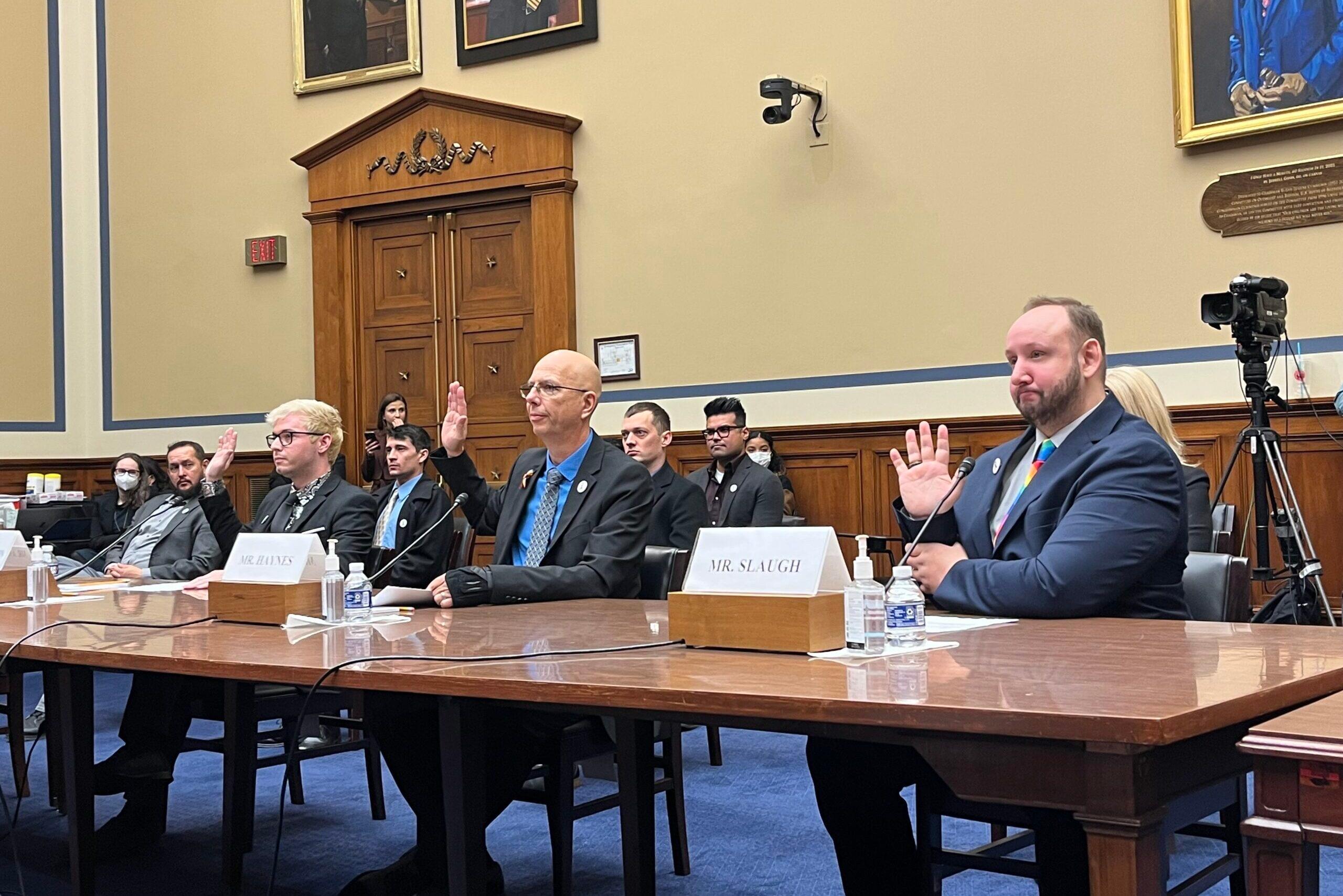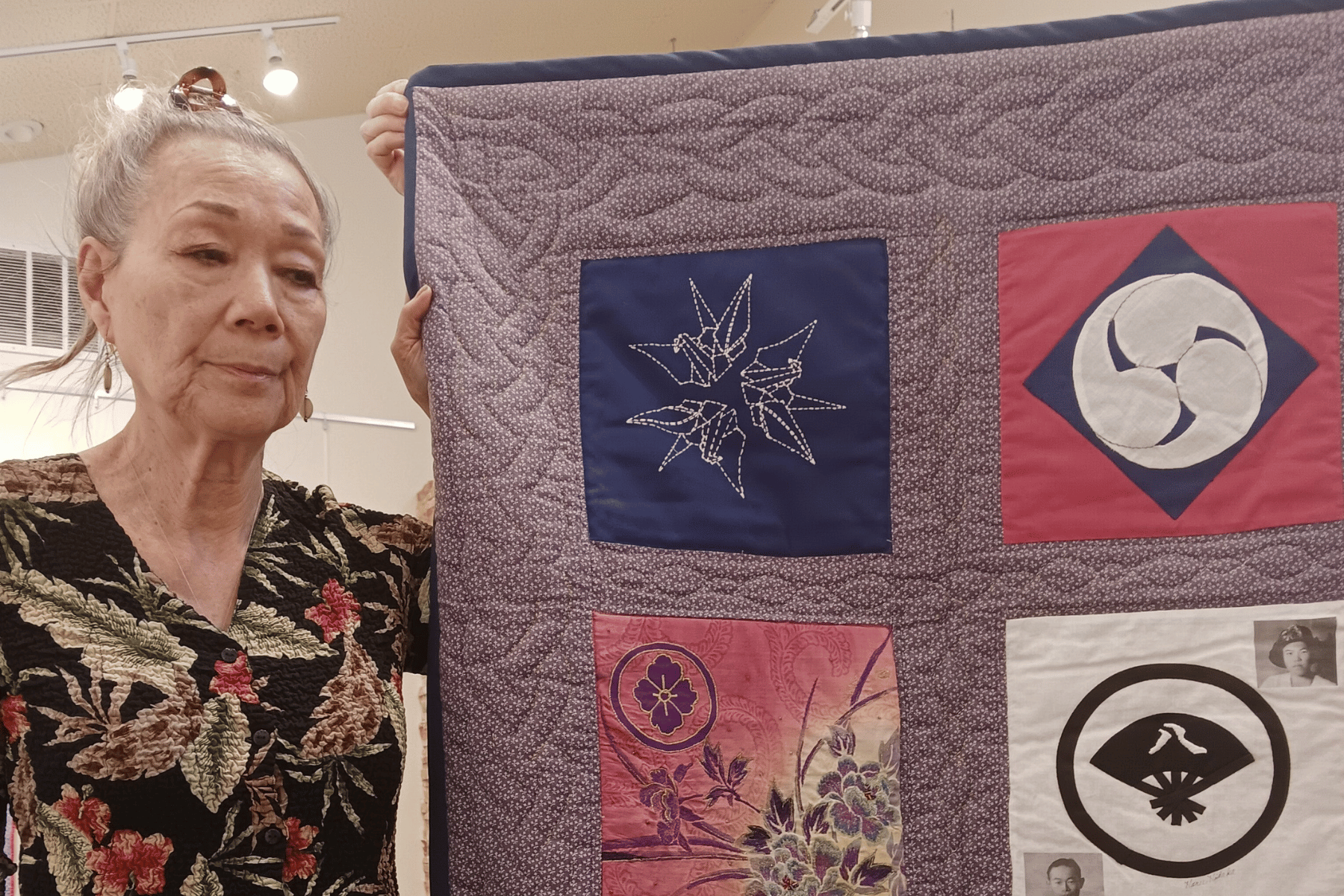
It’s been less than a month since an armed attacker shot up an LGBTQ nightclub in Colorado Springs, killing five people and wounding 17.
Two of the survivors of that mass shooting, as well as a co-owner of Club Q, testified on Capitol Hill on Wednesday about that night and the rise of hate aimed at their community.
Sitting behind an imposing oak desk, facing members of the House Oversight and Reform Committee, 25-year-old Michael Anderson recalled working behind the bar at Club Q when he heard the sound of gunfire.
“I can still hear the rapid firing of bullets today,” he said. “It's a sound I may never forget. It's a sound I hope no one here or anywhere else in this country has to hear.”
He recounted how he panicked, how he prayed, and finally how he said goodbye to a friend who lay dying on the ground.
“I say all of this not because it's easy to do so, but because it's important to do so,” he said.
He pleaded with lawmakers to do something about what led to the violence that night. The suspected shooter has been charged with 305 crimes, including 40 biased-motivated crimes.
Anderson did not hold back his frustration or anger.
“To the politicians and activists who accuse LGBTQ people of grooming children and being abusers: Shame on you,” he said.
The hearing on the rise of anti-LGBTQ violence drew some pushback from Republicans
His testimony was part of a hearing on the rise of anti-LGBTQ violence convened by Rep. Carolyn Maloney of New York, who chairs the committee. She said the Club Q attack is part of a broader trend of violence and intimidation across the country that includes the rise in anti-LGBTQ laws in state houses and in Congress.
“These actions are the culmination of years of anti-LGBTQI extremism that began in state houses across the country and spread to social media platforms before boiling over into the communities where we reside,” she said in her opening statement. “These hateful pieces of legislation have fueled a dangerous rise in extreme anti-LGBTQI rhetoric.”
Rep. James Comer of Kentucky, the ranking Republican on the committee denounced violence in all forms but pointed the finger back at Democrats.
“This is not an oversight hearing. This is a blame Republicans so we don’t have to take responsibility for our own defund-the-police and soft-on-crime policies."
And other Republicans noted that liberals have directed hateful words at conservatives, as well.
“This is not a one-sided argument, it goes on both sides and it needs to be dealt with on both sides,” said Rep. Jody Hice of Georgia
Drawing a connection between anti-LGBTQ rhetoric and violence
Matthew Haynes, who founded Club Q more than 20 years ago, says it’s clear to him that his club was targeted. For all the loving thoughts and prayers sent in the aftermath of the mass shooting, Haynes also got hateful ones, which he read to the committee.
“And so I ask you today, not simply what are you doing to safeguard LGBTQ Americans, but rather what are you or other leaders doing to make America unsafe for LGBTQ people?”
Haynes told committee members that the community needs the support of their leaders now.
James Slough agreed. He, his boyfriend and his sister were all shot at Club Q. And he said that night was one of his biggest fears come true — rhetoric leading to violence.
“Hate starts with speech. The hateful rhetoric you've heard from elected leaders is the direct cause of the horrific shooting at Club Q. We need elected leaders to demonstrate language that reflects love and understanding, not hate and fear,” he told the committee.
A contrast to the mood at the signing of the Respect for Marriage Act
The somberness and solemness of testifying in front of Congress was a noted contrast to the celebration they all felt Tuesday afternoon.
The three men were all at the White House for the signing of the Respect for Marriage Act, which codifies federal protections for same-sex and interracial marriage.
“It's about balancing the joy of the celebration of yesterday with the passion and anger for fighting for change today,” he said. “I'm not going to shut up until it does get done, so, I hope they listen sooner rather than later.”
In all likelihood, it will be later. This was the last full committee hearing before Congress ends – so no legislation is likely to come out of the hearing.
On Jan. 3, control of the House switches from Democrats to Republicans.









